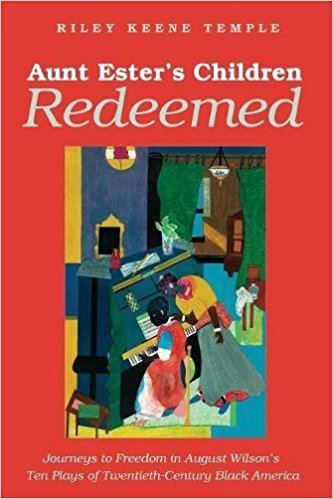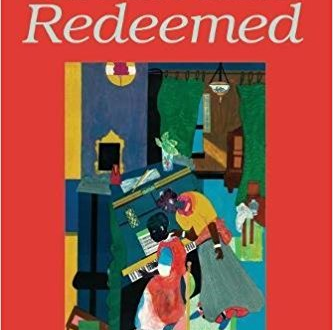Juneteenth, also known as Juneteenth Independence Day or Freedom Day, is a holiday that commemorates the June 19, 1865 announcement of the abolition of slavery in Texas, and more generally the emancipation of African-American slaves throughout the Confederate South. Juneteenth is recognized as a state holiday or special day of observance in most states.
 Riley Keene Temple’s recently published book, “Aunt Ester’s Children Redeemed: Journeys to Freedom in August Wilson’s Ten Plays of Twentieth-Century Black America,” examines the redemption story of each play – how the southern black oppressed, descendants of centuries of slavery, put the pieces of themselves back together. Temple analyzes how Wilson’s language – his poetry and the blues — and his dramatic narratives expose the responsibilities, the opportunities, and the challenges of freedom.
Riley Keene Temple’s recently published book, “Aunt Ester’s Children Redeemed: Journeys to Freedom in August Wilson’s Ten Plays of Twentieth-Century Black America,” examines the redemption story of each play – how the southern black oppressed, descendants of centuries of slavery, put the pieces of themselves back together. Temple analyzes how Wilson’s language – his poetry and the blues — and his dramatic narratives expose the responsibilities, the opportunities, and the challenges of freedom.
Wilson’s plays include “Fences,” “The Piano Lesson,” and “Ma Rainey’s Black Bottom.” The New York Times obituary called him “the theater’s poet of black America.”
“Wilson, a two-time Pulitzer Prize winner, died in 2005 at the age of 60. He would have wanted to see the wondrous celebrations of Juneteenth. He would have seen them as both meet and right,” says Riley Keene Temple.
Riley Keene Temple is an avid American arts advocate and supporter, and has been honored for his leadership of arts organizations. He is a telecommunications attorney in Washington DC, where his Board memberships include the National Archives Foundation and the Trust for the National Endowment for the Humanities. He holds a Masters degree, cum laude, of Theological Studies from the Virginia Theological Seminary. He has written frequently on theology and the creative arts.
 Westside Story Newspaper – Online The News of The Empire – Sharing the Quest for Excellence
Westside Story Newspaper – Online The News of The Empire – Sharing the Quest for Excellence




